
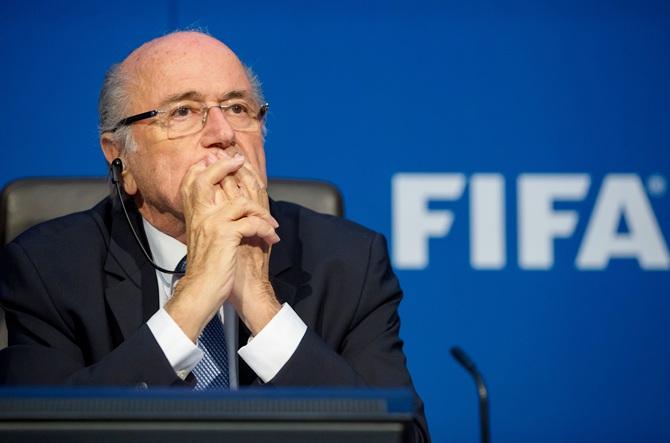
Sepp Blatter, Switzerland, 79
President of FIFA for more than 17 years, banned for eight years by the Ethics Committee he created to help clean up FIFA's image when it found him guilty of a conflict of interest by paying European soccer boss Michel Platini 1.3 million pounds ($1.86 million) for work done a decade earlier. Ban reduced to six years on Wednesday.

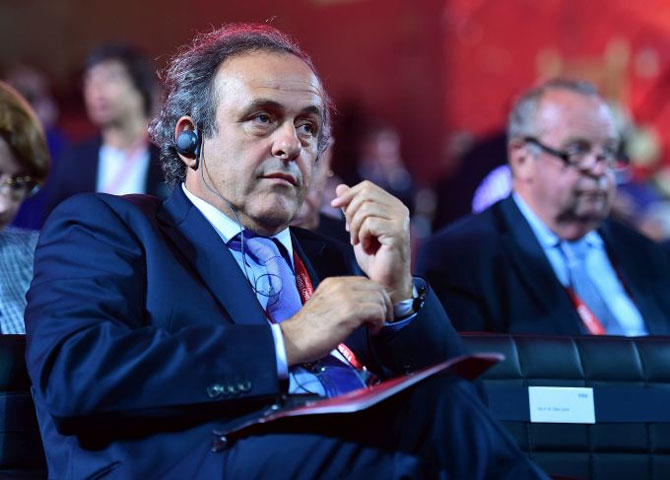
One of the greatest footballers of all time, he became president of UEFA in 2007. At one stage seemed destined to succeed Blatter as FIFA president, but the payment he received from FIFA also landed him with an eight-year ban, reduced to six on appeal.

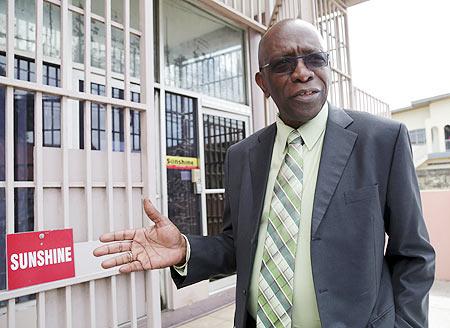
Warner's role as president of CONCACAF, which organises soccer in North and Central America and the Caribbean, gave him enormous influence as a powerbroker for Blatter.
A former member of the FIFA Executive Committee and former CONCACAF president Warner was suspended by FIFA in 2011 and in 2015, charged with wire fraud, racketeering and money-laundering by the United States. FIFA last year banned him from all football-related activity for life.

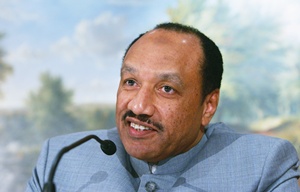
The former president of the Asian Football Confederation was due to stand for the FIFA presidency against Blatter in 2011.
Shortly before the election, he was accused of attempting to bribe officials in a meeting in the Caribbean, and was suspended by FIFA.
Bin Hammam was banned for life from all football-related activity in December 2012.

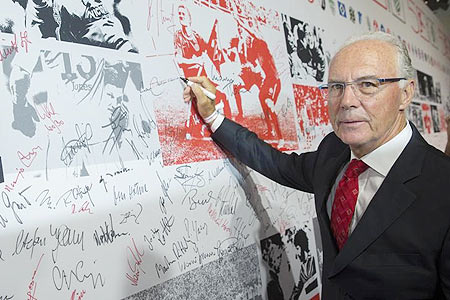
Beckenbauer ranks among the best players of all time, and is one of only two men to win the World Cup as player and coach.
In June 2014, he was banned by FIFA for 90 days from football-related activity for refusing to cooperate with an inquiry into corruption surrounding the votes. He was fined 7,000 Swiss francs and given a warning by the FIFA Ethics Committee last week.


Valcke has been sacked twice by FIFA in less than 10 years.
In December 2006, a New York court ruled he had lied in his position as marketing director as FIFA sought to switch its commercial credit card partner Mastercard for Visa, with the court fining FIFA $60 million as a result.
Blatter fired Valcke, but six months later he was back as FIFA secretary general, a position he filled until last year.
Last month he was formally sacked again, banned by FIFA from all football-related activity for 12 years, and fined 100,000 Swiss francs.


Blazer worked with Warner as CONCACAF's general secretary and sat on the FIFA Executive Committee from 1996 to 2013, when he admitted to conspiring with other FIFA Executive Committee members to accept bribes in connection with World cup bids.
His cooperation with the U.S. Federal Bureau of Investigation, by wearing recording equipment to meetings, led to the arrest of several FIFA officials in Zurich.
Pleaded guilty in a New York court to charges included racketeering, wire fraud, income tax evasion and money laundering, and last July FIFA banned him from all football-related activity for life.

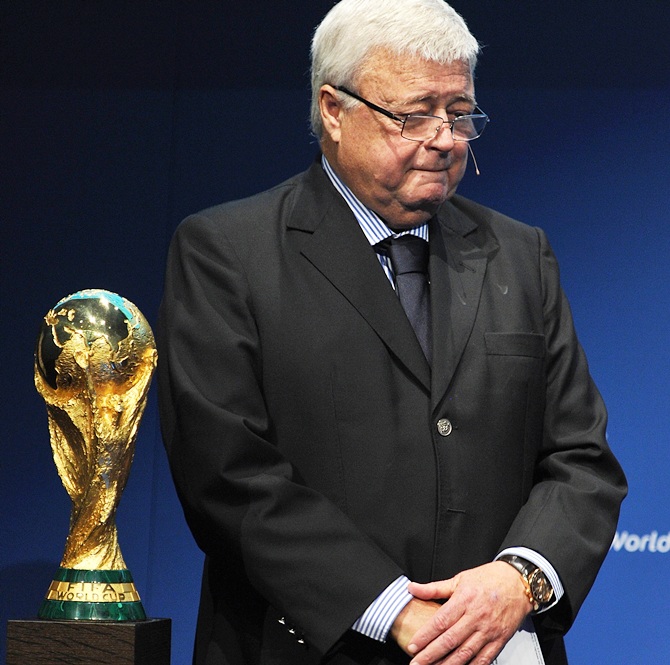
A former son-in-law of long-time FIFA president Joao Havelange, Teixeira was president of the Brazilian national soccer association (CBF) from 1989 until 2012, when he stepped down, citing ill health. A Swiss prosecutor's report alleged that, during his tenure on FIFA's Executive Committee, he and his former father-in-law had taken more than $41 million in bribes in connection with the award of World Cup marketing rights.


Webb joined the FIFA Executive Committee after the December 2010 vote as the reforming head of CONCACAF, and was immediately seen as a possible future FIFA president.
He was quickly made head of FIFA's Anti-Racism Task Force and seemed set for a distinguished career in soccer administration, but on May 27 he was arrested in Zurich on corruption charges.
He resigned as president of CONCACAF, was expelled from the FIFA Executive Committee and is awaiting trial in the United States.


Havelange, who will be 100 in May, was accused in 1974 of bribing his way to power by buying votes to win that year's FIFA presidential election.
Rumours surfaced throughout his 24-year reign which ended in 1998 and in 2013 he was forced to resign his position as Honorary FIFA President after the Ethics Committee ruled he had taken bribes over an eight-year period from the sports marketing agency ISL.
FIFA described his behaviour as "morally and ethically reproachable".